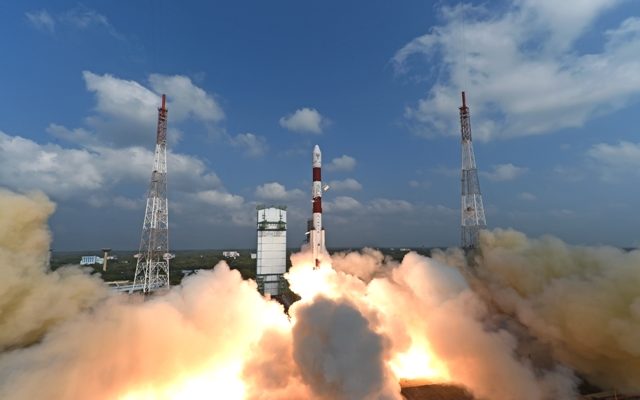For the first time, all Israeli universities will have access to data from an Israeli nano-satellite for research purposes.
India’s space agency said it successfully launched more than 100 nano-satellites into orbit Wednesday aboard a single rocket.
The Indian Space Research Organization said the nano-satellites — weighing less than 10 kilograms (22 pounds) — were sent into orbit from southern India. It said the launching of the 104 satellites was a record, overtaking Russia’s feat of sending 37 satellites in a single launch in 2014.
“All 104 satellites were successfully placed in orbit,” the Press Trust of India news agency quoted ISRO Chairman A.S. Kiran Kumar as saying.
The ISRO said in a statement that the other satellites were international customer satellites, including 96 from the United State, one each from the Netherlands and Switzerland, and two each from Israel, Kazakhstan and the United Arab Emirates.
The Israeli satellites were launched for civilian and research purposes.
One satellite belongs to the Israeli SpacePharma company, which designed it for medical experiments. SpacePharma is focused on using microgravity, or virtual weightlessness, for research and development.
The second Israeli satellite was built by Ben Gurion University in the Negev. It is the size of a milk carton and weighs only five kilograms. The satellite, called BGUSAT (Ben Gurion University of the Negev Satellite) is designed for climate research.
The BGUSAT research unit is outfitted with innovative new cameras that can detect climate phenomena and a guidance system that lets the operators choose the areas to shoot and research through a dedicated ground station at BGU. Despite its miniature size, the satellite will enable researchers involved in its outer space tasks to receive high-quality photographs from it, which until now were obtainable only from foreign satellites, at great cost.
It is the first time any Israeli university will have access to data from an Israeli nano-satellite for research purposes.
Prof. Dan Blumberg, BGU’s VP and Dean for R&D, said “nano-satellites enable space engineering and space research at costs that are affordable for academia. The reduced costs allow academia to assume a much more active role in the field, taking advantage of the innovation and initiative of researchers and students.”
The satellites were developed with the help of the Israel Space Agency in the Ministry of Science, Technology and Space.
By: World Israel News Staff
AP contributed to this report.





